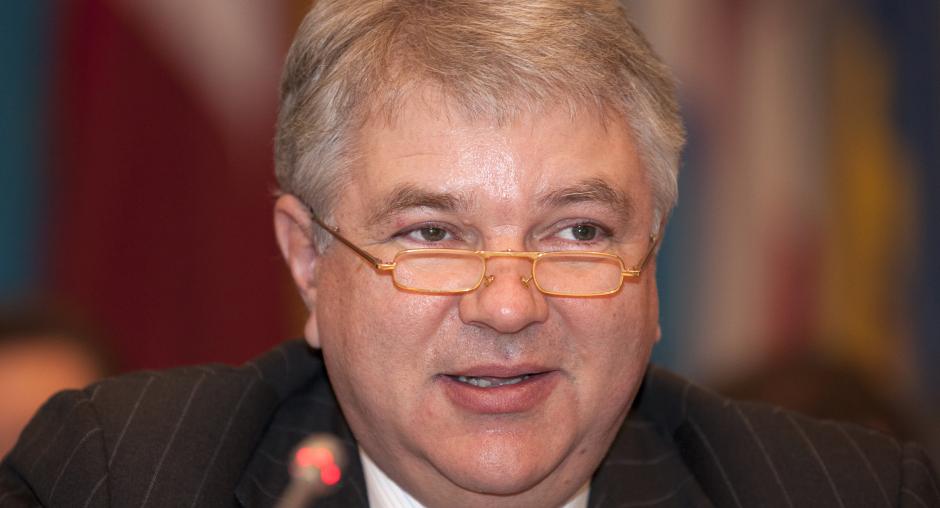Russian Deputy Foreign Minister in his address to OSCE outlines Russia’s priorities

VIENNA, 14 March 2013 – Russian Deputy Foreign Minister Alexey Meshkov in his address to the OSCE Permanent Council today outlined key priorities of Russia in the Organization in creating a system of “equal and indivisible security”.
Meshkov said that an important issue in shaping the security community from Vancouver to Vladivostok is to “apply in practice the OSCE principle of the indivisible security, and to ensure the implementation by all countries and groups of countries of the commitment not to strengthen their security at the expense of others”, and noted the importance of continuing the involvement of the civil society and academia into the collective “brainstorming” on the security community creation.
Conventional arms control and combatting transnational threats and challenges are essential for strengthening security in the OSCE region, Meshkov said. He also noted the importance of the “Helsinki+40” process as a “window of opportunity to strengthen the role, reputation and relevance of the OSCE” and for its transformation into a full-fledged international organization.
He reiterated Russia’s commitment to conflict settlement in the OSCE region “based on three key principles: conflicts must be settled exclusively by peaceful means, within the existing formats and respecting the interests of the sides”.
“It is important to always remember that a bad peace is better than any war,” Meshkov said. “Therefore we caution against any actions from the OSCE that could be of detriment to the positive achievements of any given peace process.”
Speaking about economic and environmental dimension of security, Russian Deputy Foreign Minister stressed the importance of socio-economic aspects of human rights.
Meshkov outlined the Russian position on the human dimension of the work of the OSCE, focusing on the issues of visa-free travel, election legislation and protecting human rights. He said it was “necessary that the OSCE Office for Democratic Institutions and Human Rights observed elections in all OSCE states and on an equal footing”.
In his address, Meshkov also presented to OSCE participating States the priorities of Russia as the Chair of the “G-20” in 2013.
The Permanent Council is one of the OSCE's main regular decision-making bodies bringing together representatives of all 57 participating States of the Organization. It convenes weekly in Vienna to discuss developments in the OSCE area and to make decisions.
